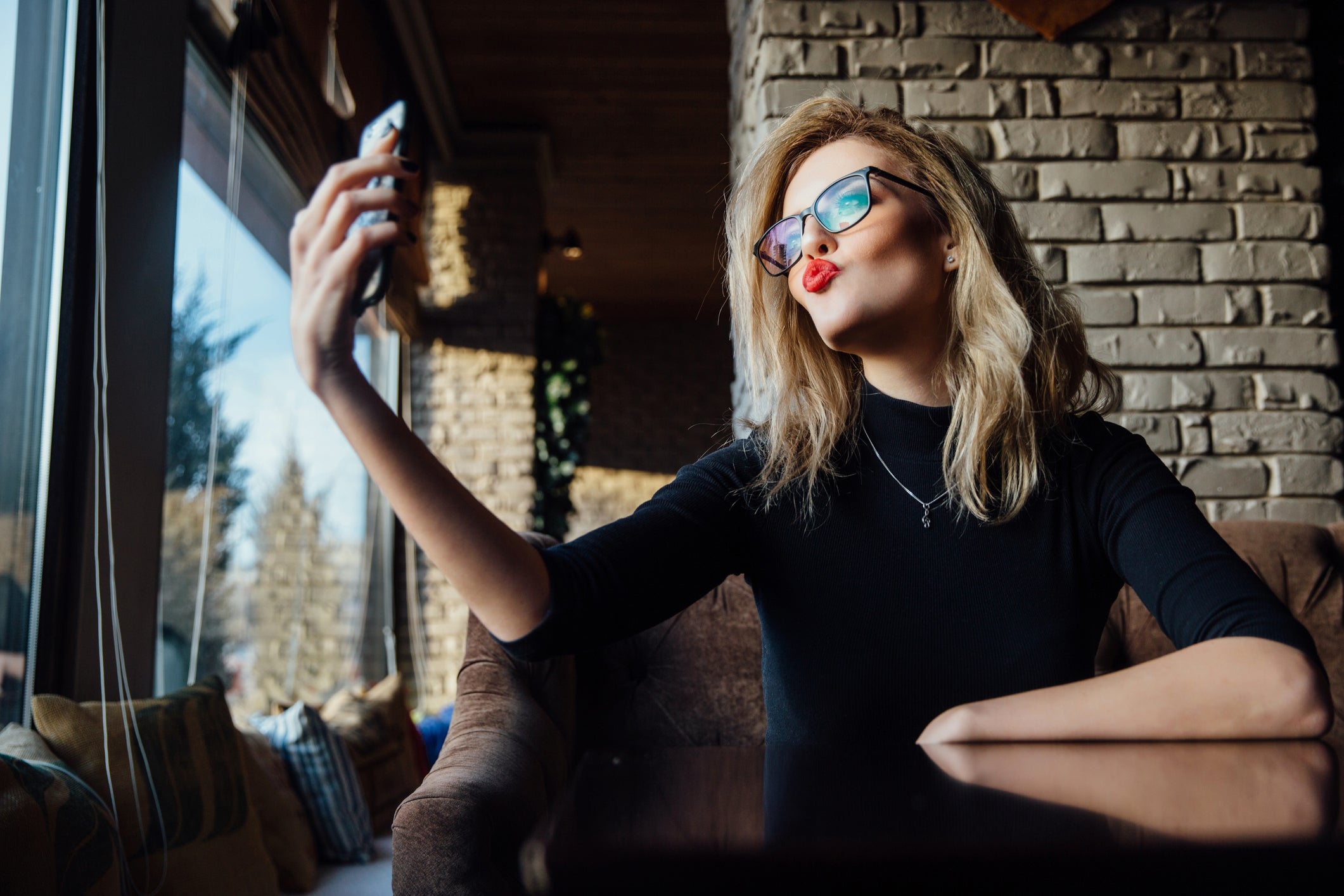Celebrity selfies fuelling negative body image crisis among children, minister says
‘Children are growing up with warped view of normality because of social media,’ says education secretary

Online celebrities and social media influencers should take fewer selfies to reduce negative body image among children, the education secretary has said.
Damian Hinds is calling on people who boast large numbers of followers on social media to be more transparent with their young fans about how images have been altered.
The minister says children are growing up with a “warped” view of what is normal because of false images they see on social media.
Mr Hinds is urging influencers and celebrities to be less appearance focused, adding that they should use the #notedited hashtag when posting real content on social media.
His comments come after data from the Mental Health Foundation revealed that two in five teenagers feel anxious because of the way body image has been idealised online.
And a new study this week revealed that headteachers in England are more likely to face problems with cyberbullying and misusing social media among pupils than in any other developed country.
The Organisation for Economic Cooperation and Development report reveals 14 per cent of secondary heads in England say parents or pupils reported hurtful information being posted online about pupils at least weekly – the highest in all countries surveyed.
Speaking on Stop Cyberbullying Day, Mr Hinds said: “I want social media influencers to think about what they are putting on their platform – is it honest? Is it authentic? Is it too image focused?
“I have always been supportive of the benefits of the internet and for many children and young people it can open up worlds that would otherwise go unexplored.
“What I am asking online celebrities for is for fewer selfies and more travel, more nature, more honesty. Use your access to educate your young followers rather than focus on body image.”
From 2020, health education will be compulsory in all state schools in England.
Children will be taught about internet safety and harms, including the unrealistic expectation of body image, alongside the importance of mental wellbeing as part of statutory lessons.

Mr Hinds added: “These are only pieces of the puzzle – because no one seems to be immune from online cruelty, and whilst teachers and school do their best to prepare and protect their students, the phone in someone’s pocket is with them 24/7, not just in school hours.
“All online influencers, social media companies, TV channels and streaming sites must take their responsibility more seriously because their world is one we spend so much time in.
“We need action now to stop today’s young people facing a lifetime of abuse online.”
Join our commenting forum
Join thought-provoking conversations, follow other Independent readers and see their replies
Comments
Bookmark popover
Removed from bookmarks